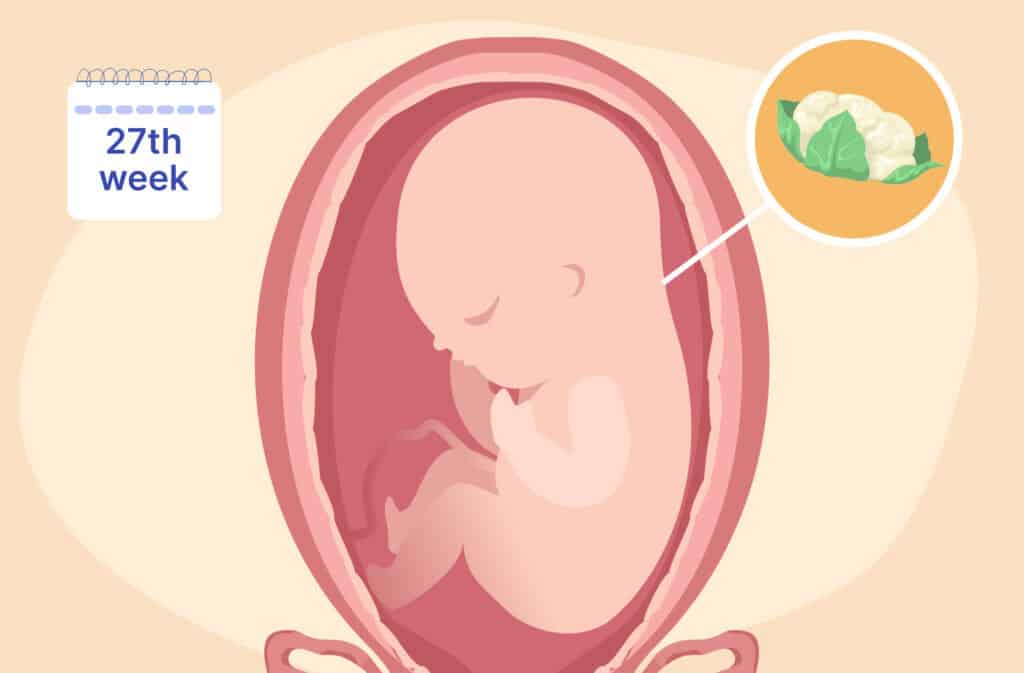Femia > Health Library > Pregnancy > Pregnancy health > Why can’t pregnant women eat deli meat? Risks, safety tips, and alternatives
Why can’t pregnant women eat deli meat? Risks, safety tips, and alternatives

- Updated Feb 11, 2025
- Published
CRAFTED BY HUMAN
Crafted by human At Femia, we provide accurate and up-to-date information at every stage of your journey, from trying to conceive, pregnancy and postnatal support. All content is created by a real person based on in-depth research and own professional experience. Femia ensures that you will receive expert advice, strict accuracy and a personalized approach from our authors/medical experts. Learn more about our editorial policy.
FACT CHECKED
Fact checked At Femia Health, we maintain the highest standards of editorial excellence in delivering content focused on helping you conceive, guiding you through pregnancy, and supporting you postpartum. Explore our content review principles to learn how we ensure the accuracy and quality of our health and lifestyle tips for every stage of your journey.
It is recommended for pregnant women to avoid eating deli meats due to an increased vulnerability to food poisoning from Listeria, which can cause pregnancy complications. To keep you and your baby safe, heat deli meats until they’re steaming hot (reaching an internal temperature of 165°F or 73.8°C). Use methods like an oven or stovetop to ensure even heating, as microwaves can leave cold spots where bacteria may survive.
If you’d rather avoid deli meats altogether, there are plenty of safe alternatives, like freshly grilled chicken or turkey, canned meats (in moderation), or vegetarian proteins, like hummus or tofu. These options can keep your meals safe and delicious during pregnancy.
One of the most common questions expectant mothers may have is whether it’s safe to eat lunch meat while pregnant. Deli meats are a staple in many diets because they’re quick, easy, and tasty—perfect for busy days or when you’re craving something savory. But, when you’re expecting, it’s important to pause and think about what you’re eating.
While lunch meat is convenient and flavorful, there are some specific risks associated with it during pregnancy that you might not know about. Understanding these risks can help you make safer choices for both you and your baby and ensure you’re still enjoying your meals without worry. Let’s explore whether you should eat deli meat while pregnant, how to ensure you are consuming deli meat safely, and why some food choices might be better than others.
With Femia, you will get personalized insights every step of the way
Can you eat deli meat while pregnant?
The general recommendation is to avoid deli meats unless they’ve been properly heated. Although turkey, ham, bacon, and salami are often ready to eat, you should always heat them to a temperature of 165°F to kill any harmful bacteria and parasites. Pepperoni, like other processed meats, should be fully cooked. If eating pepperoni on top of a pizza, make sure that you serve it hot.
Heating deli meats until they’re steaming hot ensures that any potential threats, like Listeria, are eliminated, making the meat safer to eat. Microwaves can sometimes heat food unevenly, so double-check whether your meats are heated throughout.
Remember that eating lunch meat cold or directly from the package increases the risk of exposure to harmful bacteria, especially Listeria, which can grow in cold temperatures. Ensure that your fridge is cold enough, below 4°F.
Why can't pregnant women eat deli meat?
You might still be wondering: why can’t you eat deli meat while pregnant? The main concern with deli meat during pregnancy is the risk of contamination with Listeria, a harmful bacteria that can lead to a serious foodborne illness called listeriosis.
Listeria is found in soil, water, and certain animals, like cattle and poultry, and it can make its way into foods during processing. While rare (only 2,500 cases of listeriosis are diagnosed per year), listeriosis is one of the most severe forms of food poisoning, and pregnant women are particularly vulnerable to it.
What makes Listeria especially dangerous during pregnancy is its ability to cross the placenta. If this happens, it can lead to miscarriage, stillbirth, premature birth, neonatal sepsis, or meningitis, posing severe health risks for your baby.
Listeriosis and pregnancy
Listeriosis causes symptoms that often resemble mild flu-like illnesses. These may include:
- Fever
- Chills
- Muscle aches
- Stomach issues, like diarrhea or an upset stomach.
In some cases, you might experience more severe symptoms, such as a stiff neck, headache, confusion, or loss of balance. What makes this illness tricky is that symptoms may not appear until as long as two months after eating contaminated food.
Many pregnant ladies may not notice any symptoms at all. However, even without feeling sick, it’s possible to pass the infection to the baby. If this happens, the risks can be severe.
What should you do if you suspect you have listeriosis?
If you think you may have eaten food contaminated with Listeria or are experiencing any symptoms of listeriosis, don’t hesitate to reach out to a trusted healthcare provider. Early treatment with pregnancy-safe antibiotics significantly reduces the risk of complications for the fetus.
Your provider will perform a blood test to confirm the infection and prescribe medications to treat it. Getting the right treatment on time, which usually consists of pregnancy-safe antibiotics administered at a high dose, can help protect your baby from becoming infected.
👉Find out more: Danger signs of pregnancy in the second trimester: What to watch for and when to call your doctor
Specific deli meats and pregnancy: What to know
Not all deli meats are the same. By following these guidelines, you can still enjoy some of your favorite deli meats while minimizing the potential risks.
- Ham. Ham is generally safe if it’s thoroughly cooked or heated before eating. Heating ensures any bacteria are killed, reducing the risk of listeriosis.
- Turkey (slices or deli turkey). While turkey is a popular choice, it’s important to heat it until steaming hot. If you’re wondering, “Can I eat deli turkey while pregnant?”, the answer is yes, but only when it’s properly heated.
- Roast beef. Can you eat roast beef while pregnant? Just make sure it’s hot and thoroughly cooked. Roast beef is generally safe to eat when it’s freshly cooked or reheated to a safe temperature.
- Canned chicken. Can you eat canned chicken while pregnant? The good news is that canned chicken is safe to eat due to its sterilization process, but it should be consumed in moderation because of its high sodium content, which can increase the risk of pregnancy-related hypertension.
Pregnancy does require some adjustments to your usual diet—not just in terms of eating more nutritious foods but also being mindful of risky food choices. Some foods, like liver and liver products, can cause health concerns and even miscarriage. Oftentimes, the way you prepare and handle the food makes all the difference.
Can I eat steak while pregnant?
If you’re wondering, “Can I eat steak while pregnant?“, the answer is yes—if it’s cooked to a safe internal temperature. Steak should be cooked to at least 145°F for medium or 160°F for well-done to ensure harmful bacteria and parasites are eliminated.
Avoid rare or undercooked steak during pregnancy, as it can increase the risk of toxoplasmosis, E. coli, and salmonella infections, all of which pose serious health risks to both mother and baby.
With Femia, you will get personalized insights every step of the way
Safe ways to enjoy deli meat during pregnancy
Although the only risk-free option is to avoid deli meat entirely during pregnancy, you can manage health concerns by following these safety tips, should you choose to include it in your diet:
- Heat deli meat thoroughly. Use an oven, stovetop, or microwave to heat deli meat until it’s steaming hot. This kills harmful bacteria like Listeria.
- Avoid prepackaged sandwiches. Don’t eat sandwiches that have been sitting out for extended periods, since they may harbor bacteria. In general, avoid leaving food out of the fridge for more than an hour.
- Opt for freshly cooked meats. Whenever you can, choose freshly cooked or grilled meats instead of prepackaged ones.
I had a turkey sandwich while pregnant: Should I worry?
If you had a turkey sandwich while pregnant, try not to panic. Remember that the risk of Listeria contamination is low, and most meats are safe if properly stored and handled.
Still, stay aware of listeriosis symptoms: fever, muscle aches, nausea, or an upset stomach. If you feel unwell or are worried, don’t hesitate to reach out to your trusted healthcare provider for peace of mind.
Safe alternatives to deli meat during pregnancy
If you prefer to stay on the safe side of things and simply eat something other than deli meats while expecting, we’ve got you covered. Here are some alternatives that are not only safe but packed with much-needed nutrients:
- Grilled or freshly cooked chicken or turkey. A flavorful and safe option that provides lean protein. Perfect for sandwiches or salads.
- Canned tuna or chicken. Both are safe and convenient options. Enjoy tuna in moderation to limit mercury exposure.
- Vegetarian proteins. You could try hummus, fully cooked eggs, or tofu for a nutritious and deli-free twist on your favorite meals. Ensure that eggs are thoroughly cooked to eliminate any risk of salmonella contamination.
👉Find out more: Can you eat oysters while pregnant? Safety tips and what to avoid
Questions from the Femia community
Can pregnant women eat cured meats like salami or prosciutto?
You should avoid cured meats like salami or prosciutto unless they’ve been heated to a safe temperature. Even though they’re delicious, they can carry the same risks as other deli meats.
Are prepackaged deli meats safer than freshly sliced deli meats?
Not really—both prepackaged and freshly sliced deli meats can carry Listeria if you eat them cold. To stay safe, always heat them thoroughly before eating.
Does freezing deli meat kill Listeria?
No, freezing doesn’t kill Listeria. The only way to eliminate the bacteria is by cooking the meat until it’s steaming hot.
Can I eat deli meat during pregnancy’s third trimester?
The risks of eating deli meat are the same no matter what stage of pregnancy you’re in. It’s best to avoid cold deli meats and only eat them if they’re properly heated.
The bottom line
If you’ve ever been pregnant, you’ve probably found yourself wondering about deli meat pregnancy risks. Deli meats carry a risk of Listeria contamination, which is why pregnant women are advised to avoid them unless they’ve been thoroughly heated.
If you’ve accidentally eaten cold deli meat, don’t panic. Serious harm is unlikely, but it’s important to monitor for symptoms like fever or muscle aches, and contact a trusted healthcare provider if you’re concerned.
Making safe dietary choices, such as heating deli meats or opting for alternative protein sources like freshly cooked meats or vegetarian options, is the best way to protect your health and your baby’s well-being during pregnancy.
References
- “Deli Meat in Pregnancy.” American Pregnancy Association, 25 June 2013, https://americanpregnancy.org/healthy-pregnancy/is-it-safe/deli-meats/.
- “Foods to Avoid in Pregnancy.” National Health Service (NHS), 2 Dec. 2020, https://www.nhs.uk/pregnancy/keeping-well/foods-to-avoid/.
- “If Luncheon Meats Are Heated and Then Cooled, Can Pregnant People Eat Them?” U.S. Food and Drug Administration (FDA), https://ask.usda.gov/s/article/If-luncheon-meats-are-heated-and-then-cooled-can-pregnant-people-eat-them. Accessed 30 Dec. 2024.
- Janakiraman, Vanitha. “Listeriosis in Pregnancy: Diagnosis, Treatment, and Prevention.” Reviews in Obstetrics and Gynecology, vol. 1, no. 4, 2008, pp. 179–85.
- “Listeria and Pregnancy.” American College of Obstetricians and Gynecologists (ACOG), https://www.acog.org/womens-health/faqs/listeria-and-pregnancy. Accessed 27 Dec. 2024.
- “Listeria (Food Safety for Moms-to-Be).” U.S. Food and Drug Administration (FDA), FDA, 6 Sept. 2024, https://www.fda.gov/food/health-educators/listeria-food-safety-moms-be.

Learn about egg freezing technique to persevere fertility in all details, including reasons for egg freezing, timing and factors affecting success rates.

Discover what happens at 27 weeks pregnant, from baby’s development and size to belly changes and self-care tips for managing symptoms.

Discover the complete week-by-week guide about the size and stages of the pregnant belly, how it grows, and what to expect during each trimester.

